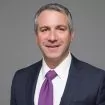- in United States
- within Government, Public Sector, Technology and Insurance topic(s)
This article is part of the Life Sciences Industry 2025 Market Update. Click here to read the full newsletter.
Many publicly traded companies in the life sciences industry are involved in the development of new drugs, devices, diagnostics, and medicines. These drugs and other life science products are subject to the FDA regulatory approval process. Information about the progress (or lack thereof) of a drug in this process is critical material information for that company and has the potential to greatly affect the price of the company's stock. Additionally, there is a long history of mergers and acquisitions in the life sciences area. Similarly, this information can significantly impact the price of the stock for both the acquiring and acquired companies. For these reasons, the life sciences industry faces high risk of insider trading by insiders and outsiders with access to these types of information.
Being associated with investigations or even rumors of insider trading can have significant negative consequences for life sciences firms. For example, if a pharmaceutical company's employee unlawfully buys stock in the company after learning that the company has made a significant, profitable scientific discovery that is not yet public, the company may face costly and disruptive regulatory investigations. Even if the SEC does not pursue an action against the company, it might nevertheless face significant expense and disruption responding to subpoenas for documents and testimony. And in any event, private shareholder plaintiffs may seek to hold the company liable in relation to the insider trading, which could lead to even greater cost and reputational harm.
Because of the significant risk of insider trading in the life sciences industry, the SEC and DOJ have followed trading in this market closely. To police insider trading, the SEC has long taken a data-driven approach that makes use of sophisticated market monitoring tools and machine learning. These tools include the Advanced Relational Trading Enforcement Metric Investigation System (ARTEMIS), which integrates historical trading records with other sources to analyze patterns and relationships among multiple traders and market events to identify suspicious trading activity. Similarly, the SEC's Market Abuse Unit (MAU) and Center for Risk and Quantitative Analysis (CRQA) conduct advanced data analytics to generate insider trading investigation leads. The SEC also partners with the FDA to obtain nonpublic information regarding regulatory pharmaceutical approvals, which aids the SEC in identifying insider trading relating to FDA announcements.
In 2024, the SEC's enforcement activity highlighted that insider trading remains an enduring problem in the life sciences industry. For instance, on December 18, 2024, the SEC filed charges against Sai-Hong Ignatius Ou, an oncologist and clinical professor, for insider trading. The SEC alleged that Ou served as a clinical investigator for a cancer drug developed by a pharmaceutical company, Nuvalent, Inc. Upon learning of positive news regarding the drug's clinical trial, Ou purchased the company's stock ahead of the public news announcement, which increased the price of Nuvalent's stock by 60%. He agreed to disgorge more than $1.5 million in illicit profits and pay a civil penalty of an equal amount. In another case, on April 30, 2024, the SEC charged Sanjay Bhandari, Vinod Singhi, and Rakesh Jain with insider trading. The SEC alleged that Bhandari misappropriated nonpublic information about the upcoming acquisition of pharmaceutical company Zogenix, Inc., from a friend who worked there. The SEC alleged that Bhandari bought Zogenix stock ahead of the public acquisition announcement, which increased Zogenix's stock price by 66%. Bhandari also tipped an additional friend, Singhi, who tipped a third friend, Rain, and both Singhi and Rain bought stock in Zogenix pre-announcement. All three agreed to disgorgement and fines totaling approximately $163,000.
On April 5, 2024, the SEC secured a landmark jury verdict on its novel "shadow trading" charges against Matthew Panuwat. See Securities and Exchange Commission v. Matthew Panuwat, 4:21-cv-06322 (N.D. Cal. Aug. 17, 2021). The SEC alleged that Panuwat, an executive at pharmaceutical company Medivation, Inc., learned that Pfizer, Inc., would acquire Medivation. Shortly after learning of the acquisition, Panuwat purchased short-term, out-of-the-money call options in a different, peer company in the industry, Incyte Corporation. Incyte's stock price rose upon public announcement of Pfizer's acquisition of Medivation because of the likelihood that Incyte could soon also be acquired. The district court rejected Panuwat's argument that this theory improperly broadened the scope of unlawful insider trading, and a jury subsequently found Panuwat liable.
In 2025, the SEC's focus on rooting out insider trading in the life sciences industry continues. For example, on March 10, 2025, the SEC charged George N. Demos, former Vice President of Drug Safety and Pharmacovigilance at Acadia Pharmaceuticals, Inc., with insider trading. The SEC alleged that upon learning negative nonpublic information from the FDA about an Acadia drug, Demos exercised most of his vested Acadia stock options and sold his shares, avoiding loss when Acadia's share price dropped upon public announcement of the news. He agreed to disgorgement and a civil penalty in an amount to be judicially determined.
In light of the abundance of material nonpublic information, it is critically important for boards, executives, and counsel for life sciences companies to be aware of these risks and proactively ensure that their companies establish infrastructure to deter and detect insider trading. This awareness is increasingly important given the SEC's recent de-prioritization of other types of enforcement cases, including cryptocurrency and AI. The SEC's new enforcement agenda is expected to prioritize traditional enforcement matters like insider trading. For instance, the Acting Deputy Director of the Division of Enforcement recently stated that the SEC is "going to move forward with the core enforcement agenda [it has] always moved forward with," including insider trading.
The content of this article is intended to provide a general guide to the subject matter. Specialist advice should be sought about your specific circumstances.



